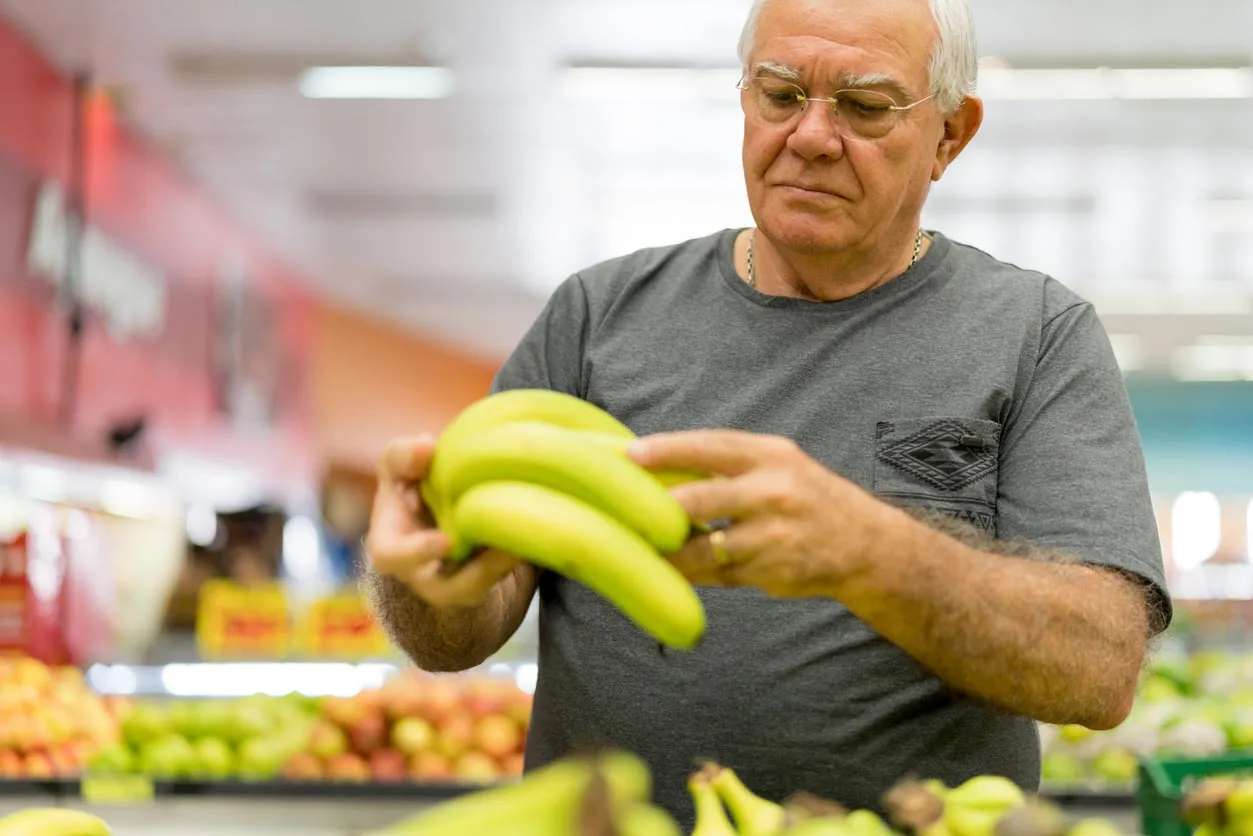Bananas are often thought of as a fruit for the young, but they actually offer numerous nutritional and cognitive benefits for the elderly as well. From improving cognitive function to aiding digestion, bananas have a lot to offer for those in their golden years. In this article, we’ll take a closer look at the nutritional benefits of bananas for the elderly, explore how they can improve cognitive function, delve into their physical benefits, and offer tips for incorporating them into an elderly person’s diet. Whether you’re an elderly person looking to improve your health or a caregiver looking for ways to enhance the diets of your charges, keep reading, to learn more about the power of bananas.
How can bananas improve cognitive function in the elderly?
Bananas are often overlooked as a powerful tool for improving cognitive function in the elderly. This humble fruit is packed with nutrients that can help support brain health and improve memory.
Research has shown that bananas are rich in potassium, a mineral that is essential for proper brain function. Potassium helps to regulate electrical activity in the brain, which is vital for cognitive processes like learning and memory.

In addition to potassium, bananas also contain vitamin B6, which plays an important role in neurotransmitter synthesis. These chemicals help to transmit signals between neurons, allowing the brain to communicate effectively and efficiently.
But it’s not just the nutrients found in bananas that make them beneficial for cognitive function. Bananas also contain natural sugars and fiber, which provide sustained energy throughout the day without causing spikes or crashes.
So if you’re looking to improve your cognitive function or support the brain health of an elderly loved one, consider adding more bananas into your diet. Whether eaten alone as a snack or blended into a smoothie with other healthy ingredients, this fruit can be an easy and delicious way to boost brain power.
The physical benefits of bananas for the elderly are numerous.
Bananas are a fruit that is often overlooked when it comes to their health benefits, particularly for the elderly. However, these humble fruits have a lot to offer when it comes to improving physical health in older adults.
One of the most significant benefits of bananas for older adults is their high potassium content. Potassium is an essential mineral that helps regulate blood pressure and can reduce the risk of stroke and heart disease. As we age, our bodies become less efficient at absorbing potassium, making it even more important for older adults to consume foods rich in this vital nutrient.
In addition to potassium, bananas are also an excellent source of fiber. Adequate fiber intake can help regulate bowel movements and prevent constipation, a common problem among older adults. Fiber also plays a role in maintaining healthy cholesterol levels and reducing the risk of heart disease.
Another benefit of bananas for older adults is their natural sweetness. As taste buds decline with age, many seniors find themselves reaching for sugary snacks or processed foods with added sugars. Bananas provide a natural sweetness without any added sugars or artificial ingredients, making them an excellent choice for satisfying sweet cravings while still being nutritious.
Overall, incorporating bananas into an elderly person’s diet can provide numerous physical benefits that can enhance their quality of life as they age. From regulating blood pressure and preventing constipation to providing natural sweetness without added sugars- these fruits are truly nature’s gift!
How can bananas be incorporated into an elderly person’s diet?
Incorporating bananas into an elderly person’s diet can be a delicious and nutritious way to improve their health. Bananas are packed with essential vitamins and minerals, including potassium, vitamin C, and vitamin B6.
To start, try adding sliced bananas to breakfast cereal or oatmeal for a boost of energy in the morning. For lunch or dinner, toss chopped bananas into a salad for an unexpected burst of sweetness.

If the elderly person has difficulty chewing or swallowing solid foods, consider blending bananas into smoothies or pureeing them into sauces for added flavor and nutrition.
It’s important to note that while bananas are a great addition to any diet, they should not be relied on as the sole source of nutrition. A balanced diet incorporating a variety of fruits and vegetables is key to maintaining optimal health.
In conclusion, incorporating bananas into an elderly person’s diet can be an easy way to improve their overall well-being. With its versatile uses and abundance of nutrients, this fruit is sure to please both taste buds and nutritional needs alike.
Check out our other articles to find out even more about banana.
The elderly can benefit from eating bananas in a variety of ways! Including increased cognitive function, improved physical health, and added nutritional value. Through incorporating bananas into their diet, the elderly can improve their quality of life. If you’re interested in learning even more about how to incorporate banana into an elderly person’s diet or what other benefits it offers, make sure to check out our other articles to find out even more about banana!

















